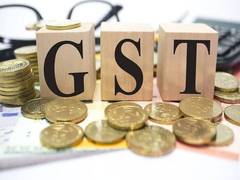Global economy staring at possibility of slowdown as fears re-emerge over recession in US
Vadodara (Gujarat)[India], May 1 (ANI): The global economy was once again beginning to stare at the possibility of economic slowdown as fears re-emerged over the possibility of economic recession in the US, owing to another banking crisis, according to a report.
The rupee is likely to remain in a range-bound manner amid the developments of weakened US Dollar Index, the local currency performing better than its Asian peers and the wait for Federal Reserve’s and European Central Bank’s rate hikes, according to Bank of Baroda’s Economics Research Department.
The US Dollar Index (DXY) is a relative measure of the US dollars (USD) strength against a basket of six influential currencies. Range-bound means no strong move in either direction.
Currently, rupee has relatively performed better than the Asian peers and is expected to trade in the range of 81.5-82.25/USD in the next fortnight. Markets will now wait Fed’s and ECB’s rate decision next week.
The Indian rupee had been volatile for almost a year now and hit several fresh all-time lows as the US dollar strengthened against major global currencies. In October 2022, the rupee breached the 83 mark for the first time in its history.
These past months, experts say depleting forex reserves faced with the high cost of imported goods, and the ongoing monetary policy tightening by the US Federal Reserve triggered the currency’s depreciation. Investors tend to move towards stable markets, such as the US, for better and stable returns amid any tight monetary policy.
According to Jahnavi Prabhakar, who authored the report, a lot is at stake for Federal Reserve now, as it considers the next rate action given the stubbornly high inflation, elevated wage growth, credit crunch scenario and uncertainty in global growth.
With the threatening issue of bank crisis, US officials are already in talks of providing a possible FDIC receivership to First Republic, it added.
When a financial institution is closed, the Federal Deposit Insurance Corporation (FDIC) is appointed as receiver and the closed financial institution is placed into receivership.
Global currencies continued to garner strength against the dollar, the BoB report said.
The weakness in US Dollar Index (DXY) was evident as it declined by 0.4 per cent amidst the macro developments surrounding US market. A weaker than anticipated growth in the US economy kept the investors on the edge, Bank of Baroda’s Economics Research Department said.
The annualised gross domestic product (GDP) of the US for the first quarter calendar year 2024 (Q1CY24) was noted at 1.1 per cent against a growth of 2.6 per cent in the last quarter, the report said. The moderation was led by a slowdown in non-residential fixed investment and private inventory investment.
Amidst these developments, analysts have priced in 88 per cent likelihood of Fed raising rates by 25 bps and might signal for a pause to one of the most aggressive rate hike policy since 1980s.
The report said most of the global currencies registered gains against the dollar with Korean won, Great Britain Pound (GBP) and Europe contributing the most.
It also said for the seventh time in a row, European Central Bank (ECB) will lift rates in the forthcoming meet with markets anticipating rate hike converging to 25 bps hike instead of 50 bps increase.
The report said these expectations were based on conflicting signs emerging from the economy, with Euro zone escaping recession and expanding by 0.1 per cent (quarterly basis) in Q1CY24 with advance seen across France, Italy and Spain. The growth was boosted by strong export sales in these regions and offsetting subdued household demand. However, growth stagnation in Germany remained a concern.
The report said global markets turned cautious once again amidst renewed concerns of banking crisis looming for the second time in the last two months along with the debt ceiling standoff in the US. Additionally, other major data releases including US GDP, Personal consumption expenditures price index (PCE), jobless claims and employment cost index is expected to strengthen the case for a rate hike by Fed as inflation pressure remains stubbornly high.






